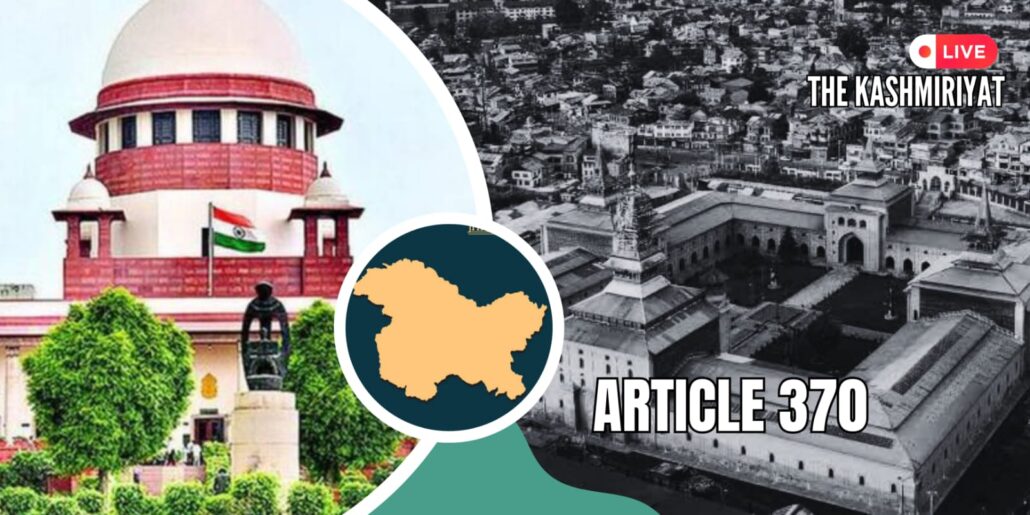
There should not be an “emotive majoritarian interpretation” of the Indian Constitution by those supporting abrogation of Article 370, as Jammu Kashmir was neither completely linked to India nor asked to sign a merger agreement like other princely states, National Conference told the Supreme Court on Monday.
Senior advocate Kapil Sibal, appearing for JKNC, told a five-judge bench headed by Chief Justice DY Chandrachud that the sovereignty of India was never under challenge.
The constitution bench was hearing the pleas challenging the nullification of provisions of Article 370 for the 15th day.
Sibal said JKNC and other petitioners challenging the Centre’s decision have always maintained that Jammu Kashmir is an integral part of India.
“We cannot make this case into an emotive majoritarian interpretation of the Constitution. If we look at history, Jammu Kashmir is not completely linked to India. The erstwhile state had a separate detailed Constitution, administrative and executive structure. It was never asked to sign a merger agreement,” Sibal said.
He told the bench, also comprising Justices Sanjay Kishan Kaul, Sanjiv Khanna, BR Gavai and Surya Kant, that when Article 370 says that ‘concurrence’ of the state government with respect to certain subjects is required, it means the executive can also say ‘no’.
The CJI told Sibal, advancing rejoinder arguments, that the Indian Constitution does not specify what would happen after the Constitution of Jammu and Kashmir comes into force.
“You see, there is no express provision. There is a complete silence as to what would happen after the J-K Constitution comes into force. It was like allowing Article 370 to operate and let the process of integration (of J-K) get over. But, at what time integration will be over is not hedged in the Constitution of India,” the CJI said.
Sibal reiterated his argument that Article 370 acquired a permanent character once the term of the constituent assembly of Jammu and Kashmir got over in 1957 after drafting the state’s Constitution.
He told the Court that Article 368 (Parliament’s power to amend the Constitution) did not apply to Article 370 as the special procedure for repealing or modifying the Article was only available under clause (3) of Article 370 and none other.
Under Article 370(3) and its proviso, the constitutional provision can be declared inoperative by the President through a notification, provided the Constituent Assembly of J&K recommends the move.
“We should interpret the Constitution textually and contextually, but not by looking at what there is in silence,” he said. Sibal said abrogation of Article 370 is a political process and it must have a “political solution”.
“So, you are saying there is no solution for abrogation of Article 370 within the Constitution and that a political solution has to be found. We have to keep in mind that all solutions have to be within the framework of the Constitution,” CJI Chandrachud told Sibal.
Sibal’s submissions remained inconclusive and will continue on Tuesday.
Earlier in the day, the top court heard arguments of counsel for intervenors, who are defending the Centre’s August 5, 2019 decision to abrogate Article 370 that accorded special status to the erstwhile state of Jammu and Kashmir.
Among those who advanced their arguments included KM Nataraj and Vikramjeet Banerjee (both Additional Solicitor General), senior advocate V Giri and others.
The bench made it clear that Tuesday will be the last day for hearing submissions on Article 370.
The intervenors had told the apex court on September 1 that the decision to abrogate provisions of Article 370 was not made by the political executive alone and Indian Parliament was taken into confidence.
Several petitions challenging the abrogation of Article 370 and the Jammu and Kashmir Reorganisation Act, 2019, which split the erstwhile state into two union territories – Jammu and Kashmir, and Ladakh – were referred to a Constitution bench in 2019. PTI




